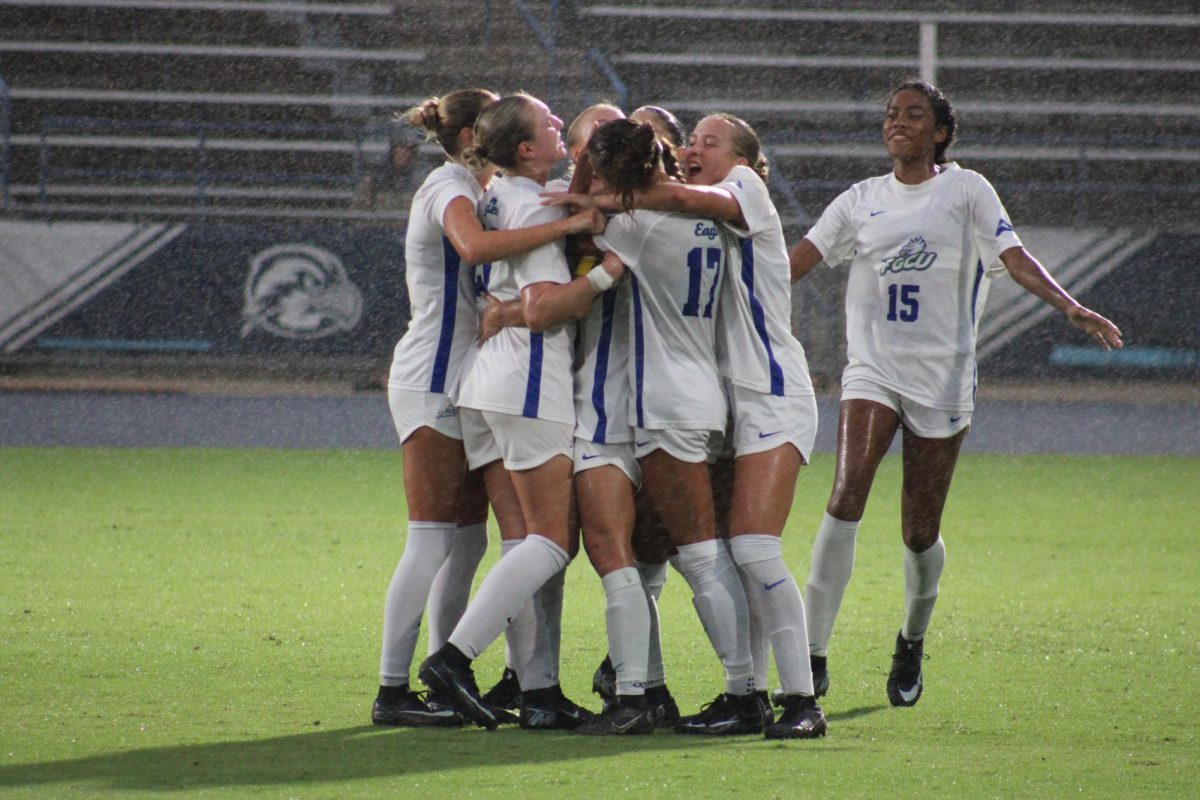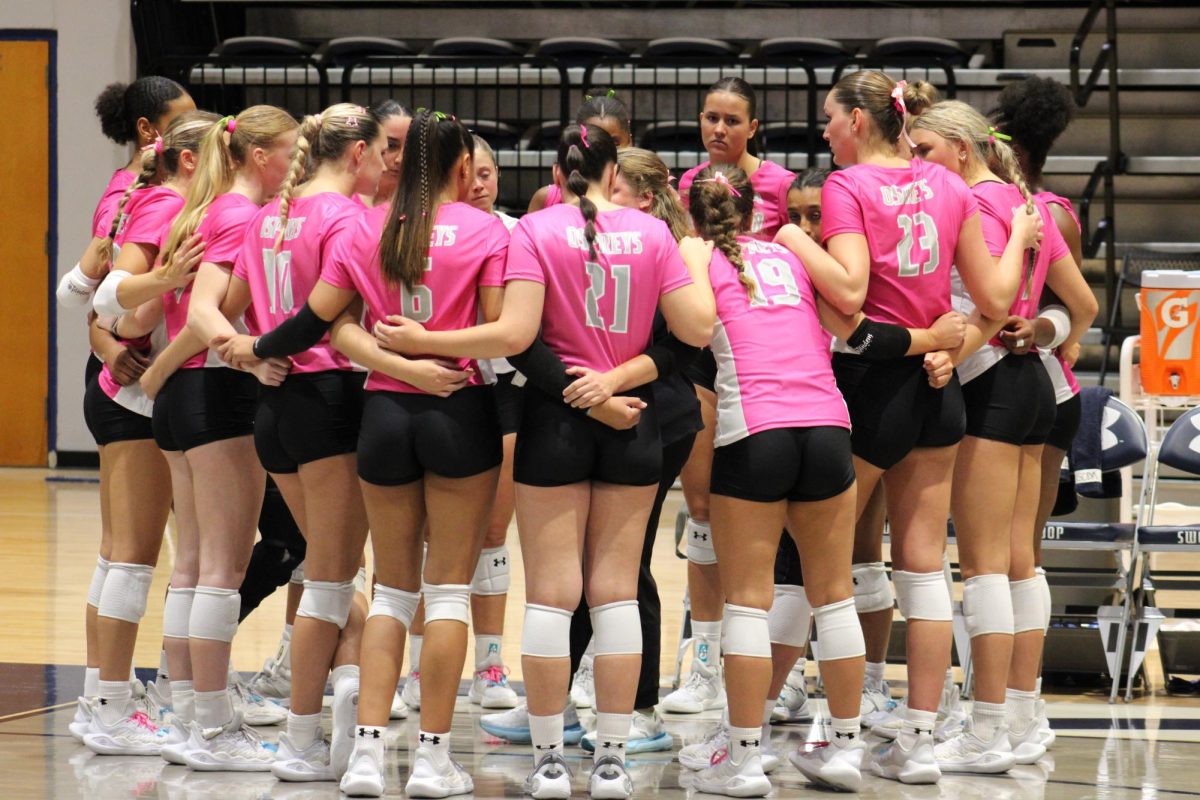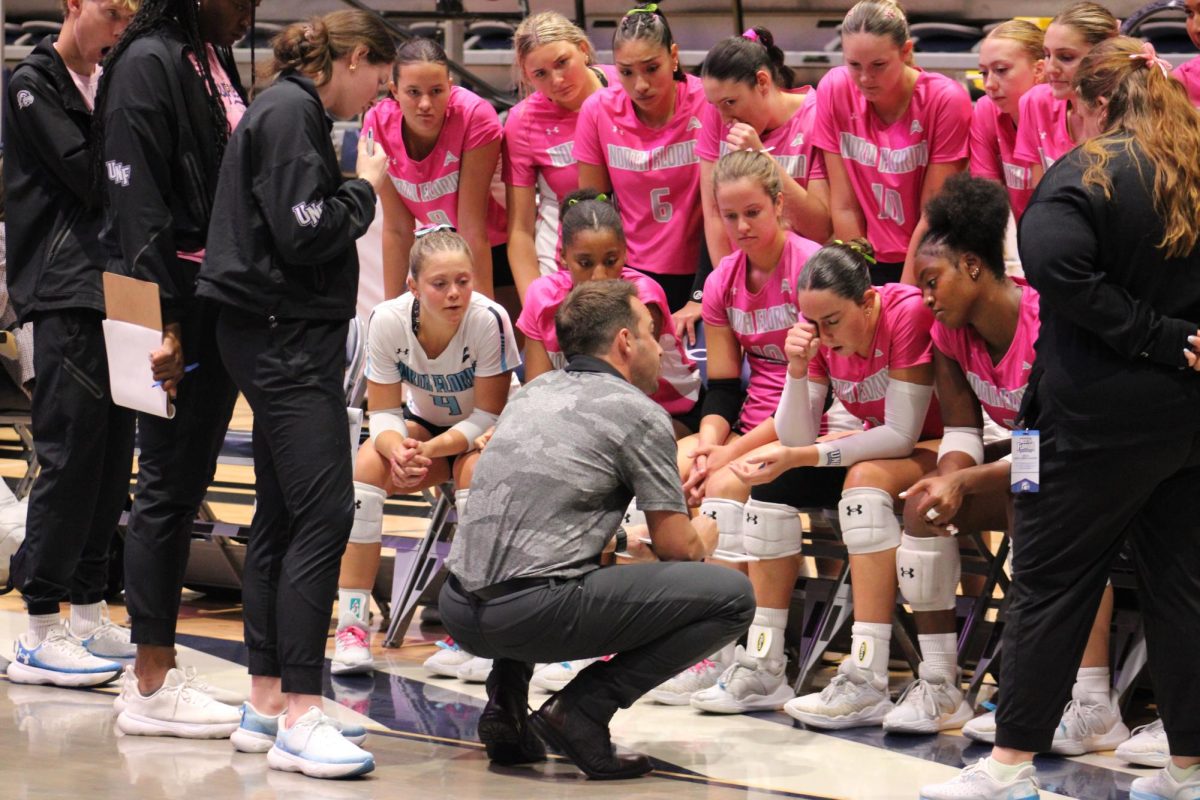Students at UNF have a plethora of choices when it comes to embracing the culture of video games, an industry that rakes in billions of dollars annually according to market research company NPD Group, Inc. Students can hang out in the UNF Student Union Game Room, participate in local and regional gaming events or simply chill at home and play with friends online.
If there is a single, cohesive bond among all the video game enthusiasts at UNF, it is their love of competition and their pleasure from victory.
Fighting in the Game Room
“I have an older brother, and he had the original Nintendo with Mike Tyson’s Punch-Out,” said Ryan Perera, a UNF graphic design senior and avid video game player. “I gave it a try one day, and since then, I’ve been playing competitively.”
The reason Perera and others from UNF like to play games is because competition gives way to friendship.
“The competitive drive is what drives me to play more and face my friends,” Perera said.
Perera is just one of many students regularly hanging out at the game room, located on the first floor of the Student Union East. UNF students come by the game room to challenge one another in video games, pool or table tennis.
Perera said he passes the time in between classes at the game room by playing “Marvel vs. Capcom 3,” a fighting game full of flashy attacks and characters from comic books and other video games. The fighting game genre makes friends become enemies for a brief moment as players try to knock one another out with their digital avatars on screen.
Two of Perera’s buddies, Jonathan Dang, a UNF computer science sophomore, and Xavier Bariuan, a UNF chemistry sophomore, also stop by the game room during their free time and challenge one another at fighting games.
“We represent the fighting game community at UNF,” Bariuan said. “There are about nine ‘Marvel vs. Capcom 3’ players who always come by the game room to play.”
Bariuan embraces the hobby at home by playing on his Xbox 360 and searching for anything fighting game related on the Internet, he said. He visits fighting game websites, such as shoryuken.com, for strategies and news. He also likes to watch videos of an annual professional fighting game tournament known as “Evo Championship Series,” he said.
“I watch Evo for the hype,” Bariuan said. “Hype means the excitement, the drive, the drama and the suspense.”
A YouTube video from the 2004 Evo tournament underscores the excitement fighting games can produce. The video shows Japanese professional Street Fighter player Daigo Umehara parrying the attacks of his arch-rival American Justin Wong, leading to Umehara countering with a flashy super attack to win the round. The audience screams and applauds when Umehara vanquishes his foe in style.
MLG and spectators
Andrew Nolan, a UNF pre-medical chemistry junior, is attending an event by professional gaming organization Major League Gaming from Oct. 14-16 in Orlando. Nolan will be working there to check in pro gamers and spectators.
“It’s an easy way to get in for free and make a couple hundred dollars while you’re there, too,” he said.
Nolan said this is the first time he will be attending an MLG event. He found the opportunity to work at an event by regularly checking the MLG website for about 18 months and applying for the job.
Nolan said he watches video streams of the competitions on the MLG website. At the last event in August at Raleigh, N.C., concurrent viewers of the video stream peaked at 138,000, and 15,000 people were in attendance, said Katie Goldberg, vice president of communications and public relation at MLG.
Nolan likes to watch pro gamers compete in the first-person shooter games “Halo Reach” and “Call of Duty: Black Ops.” At the Orlando event, pro gamers will play either one of those two games or the PC real-time strategy game “Starcraft II.” The points players earn from this event and the previous events will qualify them for the national championships in Providence, R.I., in November.
Goldberg said the company has grown exponentially over the past few years.
“In the last three MLG events, we have broken previous records — mostly from an online view perspective,” Goldberg said.
Even though MLG is a U.S. organization, Goldberg said millions of viewers around the world watch the video stream.
MLG is part of a growing segment in the video game industry known as electronic sports, or e-sports. Goldberg attributes MLG’s success to a number of factors.
“You see young kids coming with their parents, so it’s geared for all ages,” Goldberg said.
She also said companies like MLG spread the word about e-sports in a compelling way, through live events and streaming video.
“New fans or people that might not be familiar with e-sports can watch and quickly get into it,” Goldberg said. “A lot of people don’t know how robust and broad-ranging the competitive nature of the sport is.”
Playing together
Tristan Haines, a UNF psychology senior, does not visit the game room or participate in professional gaming. However, that doesn’t stop him from playing at home.
Haines’ family owns an Xbox Kinect, a camera peripheral for the Xbox 360 that tracks player movement as a means to control the game. He said his family enjoys playing video games together because of the friendly but competitive nature of the activity. Video games should not be stereotyped as an anti-social activity that diminishes student performance, he said.
“I leave video games off to the side as a reward for finishing all my school work,” Haines said.
Visitors of the game room share the same sentiment.
Charles Martell, a UNF biology sophomore, said video games do not affect his grades. He said he regularly visits the game room during his free time to meet new friends.
Grace Guzman, a UNF athletic training freshman, and Amber Pompey, a UNF English freshman, play pool at the game room together. They said the game room is a relaxed environment where everyone is friendly.
“I can leave my backpack at a table, and no one takes it,” Pompey said.
Whether it is playing “Marvel vs. Capcom 3” at the game room, “Angry Birds” on an iPhone outside a classroom or “Starcraft II” at home, UNF students seem to play video games for one reason.
“[Playing games] is a way to relieve stress and get away from the real world,” Dang said.











